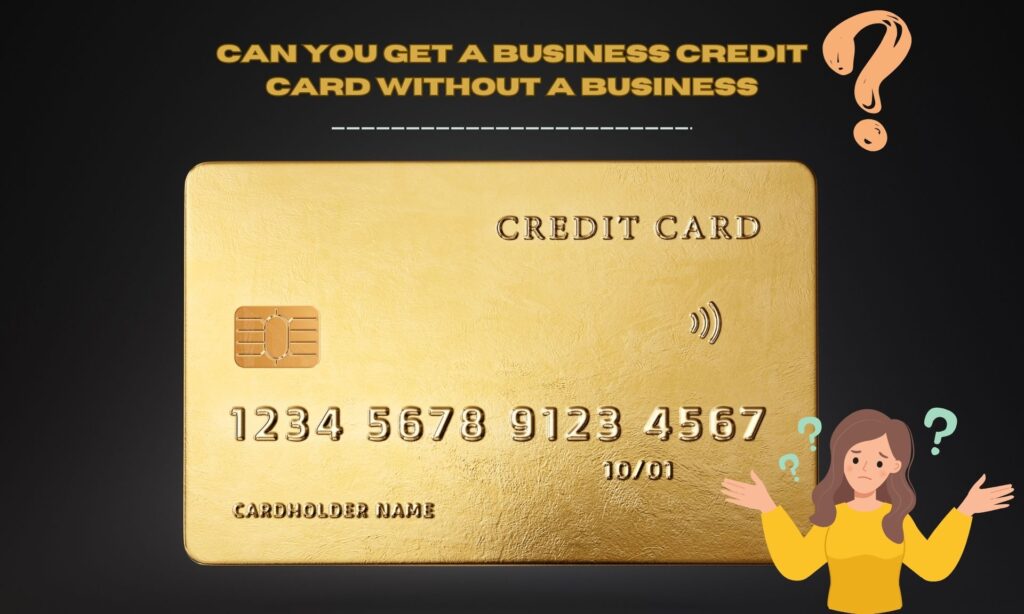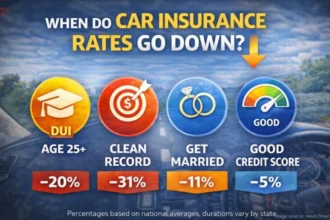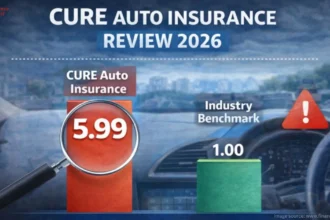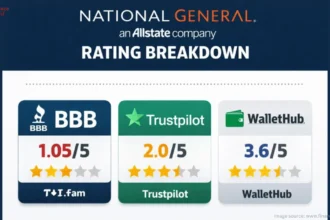The short answer is yes, you can get a business credit card without having a formal, registered business. In fact, many credit card issuers are willing to approve applicants for business credit cards as long as they have some form of income-generating activity, even if it’s just a side hustle or freelance gig.
What Qualifies as a Business for a Business Credit Card?

When it comes to business credit cards, the definition of “business” is quite broad. Credit card issuers generally consider any income-generating activity as a legitimate business, even if it’s not your primary source of income or a registered company. Here are some examples of activities that may qualify you for a business credit card:
- Freelance work (writing, design, consulting, etc.)
- Selling products or services online (e.g., on Etsy, eBay, or Amazon)
- Running a small side business (e.g., pet-sitting, tutoring, or lawn care)
- Driving for rideshare services like Uber or Lyft
- Renting out property
- Reselling items
As long as you’re earning income from these activities, you can typically apply for a business credit card as a sole proprietor. You don’t need to have a registered business entity, such as an LLC or corporation, to qualify.
READ ALSO: Is it Illegal to Use a Business Credit Card for Personal Expenses?
Benefits of Getting a Business Credit Card
Even if you don’t have a formal business, there are several advantages to getting a business credit card:
1. Separate Personal and Business Expenses
One of the biggest benefits of having a business credit card is the ability to keep your personal and business expenses separate. This can make it much easier to track and deduct business expenses during tax season. It also helps you maintain a clear distinction between your personal and business finances, which can be important for legal and bookkeeping purposes.
2. Build Business Credit
When you use a business credit card responsibly, the card issuer may report your payment history and credit utilization to commercial credit bureaus like Dun & Bradstreet, Experian Business, and Equifax Business Credit. This can help you establish and build a separate business credit profile, which can be useful if you ever need to apply for business loans or lines of credit in the future.
3. Earn Rewards on Business Expenses
Many business credit cards offer generous rewards programs tailored to common business expenses, such as office supplies, advertising, shipping, and travel. By using a business credit card for your business-related purchases, you can earn cash back, points, or miles that can help offset some of your costs.
4. Take Advantage of Business-Specific Benefits
In addition to rewards, business credit cards often come with perks and benefits designed specifically for business owners and entrepreneurs. These can include employee card access, expense tracking tools, travel insurance, and even discounts on popular business services like FedEx shipping or QuickBooks accounting software.
READ ALSO: The Ultimate Guide to Corporate vs. Small Business Credit Cards: Which is Best for Building Credit?
Applying for a Business Credit Card as a Sole Proprietor
If you’re a sole proprietor or have a small side business, the process of applying for a business credit card is relatively straightforward. Here’s what you’ll typically need to provide:
1. Personal Information
As with any credit card application, you’ll need to provide your personal details, such as your name, date of birth, Social Security number, and annual income. Your personal credit score will also be a factor in determining your eligibility and the credit limit you’re approved for.
2. Business Information
On the business side, you’ll need to provide the following information:
Business Name: If you don’t have a registered business name, you can simply use your own name.
Business Structure: Select “Sole Proprietorship” if you’re the only owner and haven’t registered as another entity type, like an LLC or corporation.
Tax Identification Number: If you have an Employer Identification Number (EIN), provide that. Otherwise, you can use your Social Security number.
Business Description: Provide a brief description of your business or income-generating activity.
Business Revenue and Expenses: You may need to estimate your annual business revenue and expenses. Even if you’re just starting out and don’t have any revenue yet, you can enter $0.
Years in Business: Indicate how long you’ve been operating your business or side hustle, even if it’s just a few months.
It’s important to be completely honest and accurate when providing this information, as falsifying any details on a credit card application could be considered fraud.
Conclusion
Getting a business credit card without a formal, registered business is definitely possible, and it can be a smart move for anyone earning income from freelancing, side hustles, or other independent ventures. By taking advantage of the rewards, perks, and credit-building opportunities offered by business credit cards, you can set yourself up for success as an entrepreneur or small business owner.
Of course, it’s important to use your business credit card responsibly, just as you would with a personal credit card. Make sure to pay your bills on time, keep your credit utilization low, and avoid racking up more debt than you can comfortably manage. Treating your business credit card with care can not only help you build a strong business credit profile but also protect your personal credit score.
If you’re unsure about whether your income-generating activity qualifies you for a business credit card, don’t hesitate to reach out to the card issuers directly for clarification. Many of them are more than happy to guide you through the application process and help you determine your eligibility.
Ultimately, getting a business credit card can be a valuable tool for separating your personal and business finances, earning rewards on your business expenses, and establishing a solid credit history for your venture, even if it’s just a side gig or passion project for now. With the right card and responsible usage, you can set yourself up for financial success as your business grows and evolves over time.
READ ALSO: Is the Chase Ink Business Premier Credit Card Worth It?
FAQs About Getting a Business Credit Card Without a Business
Do I need to have made a certain amount of revenue to qualify?
No, most business credit card issuers don’t have strict revenue requirements, especially for sole proprietors. Even if you’re just starting out and haven’t made any money yet, you can still apply and potentially get approved for a business credit card.
Will I need to provide any additional documentation?
In some cases, the credit card issuer may request additional documentation to verify your business, such as proof of business income, a business license, or a 1099 form if you’re an independent contractor. However, for many sole proprietors, the information provided on the application is often sufficient.
Can I use a business credit card for personal expenses?
While it’s generally not recommended, there’s no law prohibiting you from using a business credit card for personal expenses. However, doing so can make it more difficult to deduct business expenses at tax time and could potentially jeopardize any liability protections you may have as a business entity. It’s best to keep personal and business expenses separate whenever possible.
Will getting a business credit card affect my personal credit score?
Yes, when you apply for a business credit card, the card issuer will typically perform a hard inquiry on your personal credit report, which can temporarily cause a small dip in your credit score. Additionally, your payment history and credit utilization on the business card may be reported to consumer credit bureaus, potentially impacting your personal credit score positively or negatively.
Can I get a business credit card with bad personal credit?
It can be more challenging to get approved for a business credit card if you have bad personal credit, as your personal credit history is still a significant factor in the approval process.





